ORLANDO, FL. An assessment of last week’s 70th PGA Show clearly demonstrated a noticeable spike, both in resilience and enthusiasm, when compared to the ’22 event.
Held as usual at the Orange County Convention Center, the largest merchandising event in the sport showcased a clear vitality. Overall, golf is now entering a new phase. An older generation of Baby Boomers is fading, albeit slowly, into the shadows.
Millennials are now rapidly ascending the ladder of importance and have become the pivotal driving economic force. Future gains in the sport will be measured by their involvement, or lack thereof.
Looking back, the ’22 event was held under the lingering shadow of the global pandemic. That gathering was also impacted by poor local weather and that ominous cloud dovetailed into a somber mood for the scant number of attendees present.
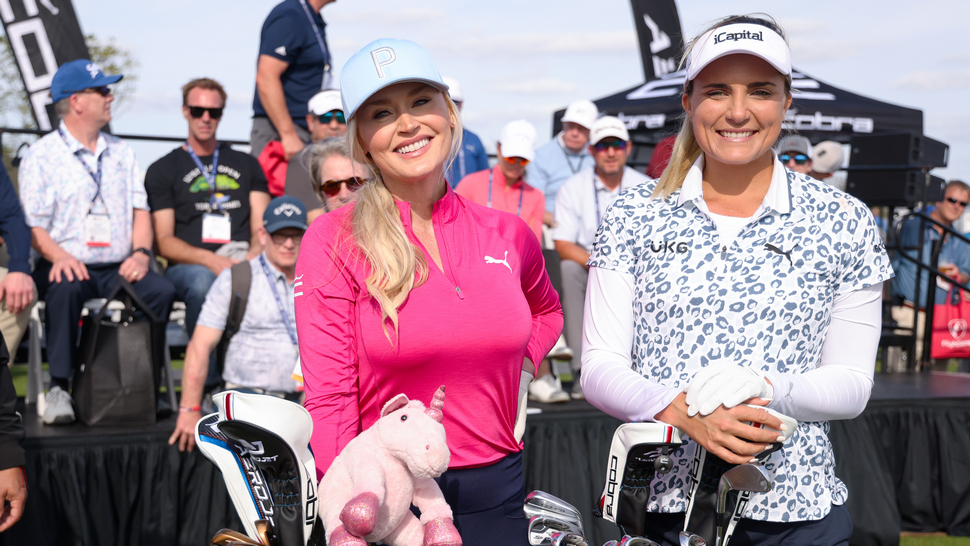
Turning the page
The uptick seen at the ’23 event manifested an energy level held in check for the last two years. Those attending saw firsthand a noticeable rebound demonstrating a bullish feeling that the global golf industry is poised for greater heights in the upcoming season.
The ’23 event also dispelled the notion that trade shows of this type are irrelevant. Nonetheless, placing the ’23 event into some sort of meaningful context is necessary.
The 2021 event was an all-virtual affair and left a clear hole. The 2022 event featured over 600 exhibitors but the most prominent companies such as Titleist/FootJoy, Callaway, TaylorMade, Cobra/Puma, Ping. Cleveland/Srixon Peter Millar and Travis Mathew, among others, remained on the sidelines.
For this year’s event, a spike from 200+ plus exhibitors pushed the total above 800 and clearly lifted the proceedings. However, the number needs to be weighed against past total numbers. Over four-digit exhibitors opted to participate at the pre-pandemic show in 2020.
The PGA Show has been held since 1954 and has been a regular visitor to Orlando since 1985. Like other trade shows the “rah-rah” drumbeat from organizers filtered down to attendees. The ’23 Show numbered at roughly 30,000 attendees with 86 different countries present and with credentialed media topping 800.
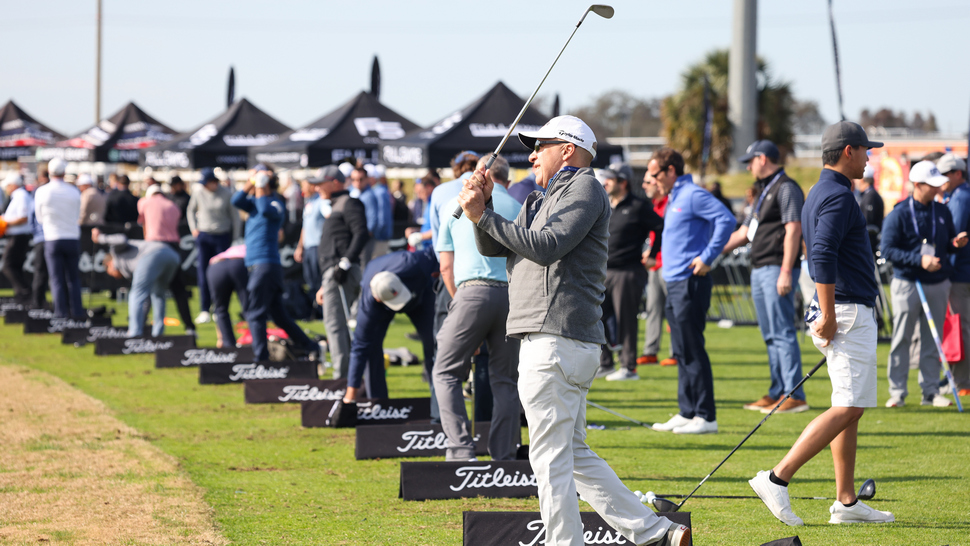
Realism takes center stage
Cheerleading the golf industry has always been a focal point for the leadership of the PGA of America, the show’s lead sponsor. But the outreach found a home this year with an emotional connection resonating with a larger and broader range of attendees eager to not only reaffirm long-time relationships but to build new ones.
While on-site sales do happen at the Show, the rollout of major equipment products now takes place at different times during the calendar year. If nothing else the PGA Show is the quintessential networking opportunity where past bonds are celebrated and future ones put into motion.
Make no mistake about it, the overall financial impact of the broader golf industry is sizeable. The golf industry is calculated at approximately $84 billion. That number represents a 22% increase from $68 billion in 2011.
At the center of that involvement is the U.S. which provides the most players, the most golf courses and the deepest of pockets to sustain all aspects of the sport.
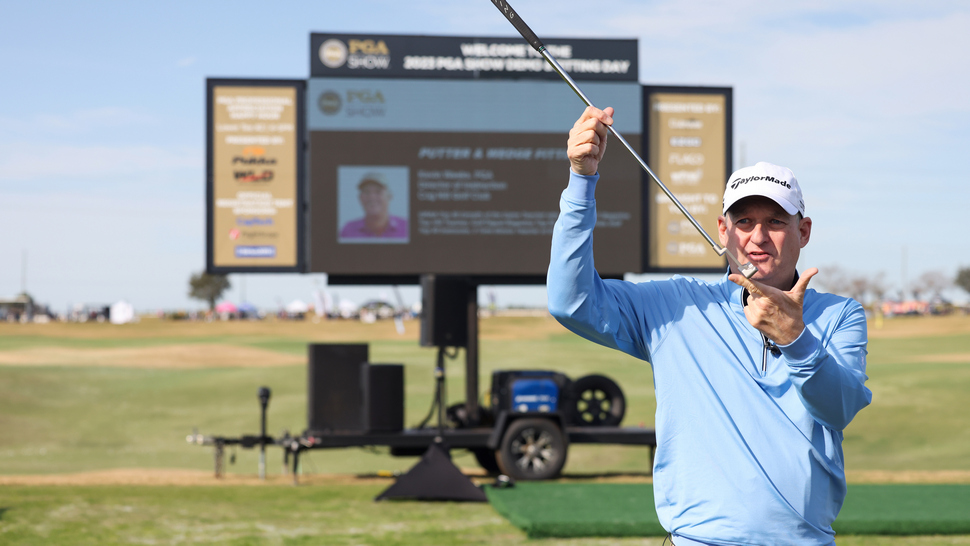
Reviewing the show
The four-day trade show event commenced with a “Demo and Fitting Day” held always at the nearby Orange County National Golf Club in Winter Garden. In years past the number of attendees for that event provided the initial spark, setting the tone for the rest of the event. This year’s gathering was certainly beyond the resounding dud from the year prior.
But in years past the demo day event was filled to beyond capacity with exhibitors and attendees occupying all the available spaces in the mega-sized circular practice range area at Orange County National.
This year’s demo event showed a few noticeable gaps in available exhibitor spaces. But the weather cooperated when compared to the ’22 event and while the size of the gathering was not at the same level as in pre-pandemic years, the atmosphere was clearly upbeat.
The second day of the event marked the grand opening at the cavernous Convention Center. The “buzz” apparent with a healthy ensemble of attendees eager to see and be seen. Exhibitors wanting a palpable connection with engaged attendees received one.
During golf’s ascending days when Tiger Woods was in his prime playing years the PGA Show was teeming with participants, center aisles cramped with people lined shoulder-to-shoulder. There were even exhibitors spilling outside the main hall. Those days appear to be in the rear-view mirror but Wednesday’s opening was vibrant and lively.
The third day of the Show still had an upbeat atmosphere but as the afternoon approached the atmosphere changed. Meetings between attendees and exhibitors were still upbeat but the overall numbers were tailing off.
The final day of any PGA Show is an abbreviated one — the program concluding at 1:00 PM. The drop-off on any final day is always apparent as those participating wish to make a quick exit to Orlando’s International Airport for the trek home.
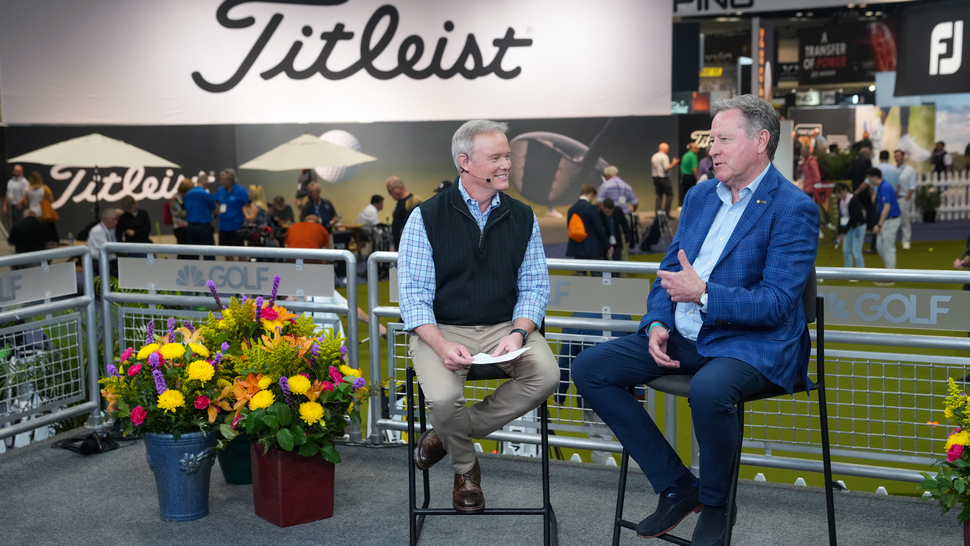
Pathways past and future
The 2023 PGA Show could well be a critical turning point in expanding the sport on several fronts but the past history of the sport is still present. Exhibitors and attendees were overwhelmingly white and upper middle class. Golf has made strides in becoming more inclusive but it’s clear more movement is needed.
Accessibility and affordability, not simply cherry-picking off those active in golf is now an active item for key stakeholders. That charge falls on the shoulders of the PGA of America and it’s one CEO Seth Waugh and current president John Lindert embraced in comments to assembled media.

Getting various programs in expanding further will take ongoing efforts to see meaningful impact but credit has to be fairly given for the desire to put such initiatives forward and backed up with sufficient resources to see them through.
Golf remains an expensive sport for many in order to sustain involvement in a continuous manner. Getting people not only familiar with the game but having them become engrossed in it will require more resources and likely a more laser-like focus from those leading the way.
The low hanging fruits in addressing accessibility and affordability have been picked off the tree. The harder part is now moving upwards into the higher more difficult branches to secure the fruit there and produce even more impactful results.
There’s no question the pandemic did provide a clear launching pad for those tired of being cooped up. Spending at much higher levels also became a boom to those providing equipment and apparel.
The World Golf Report, an economic study of the global sales of golf equipment and apparel conducted by Golf Datatech and the Yano Research Institute of Japan since 2015, indicated golf business (golf equipment and apparel sales) grew to just over $20 billion in 2021 before settling at $19.96 billion at the end of 2022.
That’s a more than 30 percent increase since 2019. Leading the way is the U.S., accounting for nearly $7.7 billion of that figure in 2022 – $2 billion more than No. 2 South Korea and $4.5 billion more than third place finisher Japan in 2022.
Interestingly, according to the data, nearly 90 percent of the golf equipment and golf apparel purchases come from five countries — the U.S., Japan, South Korea, Canada and the United Kingdom.
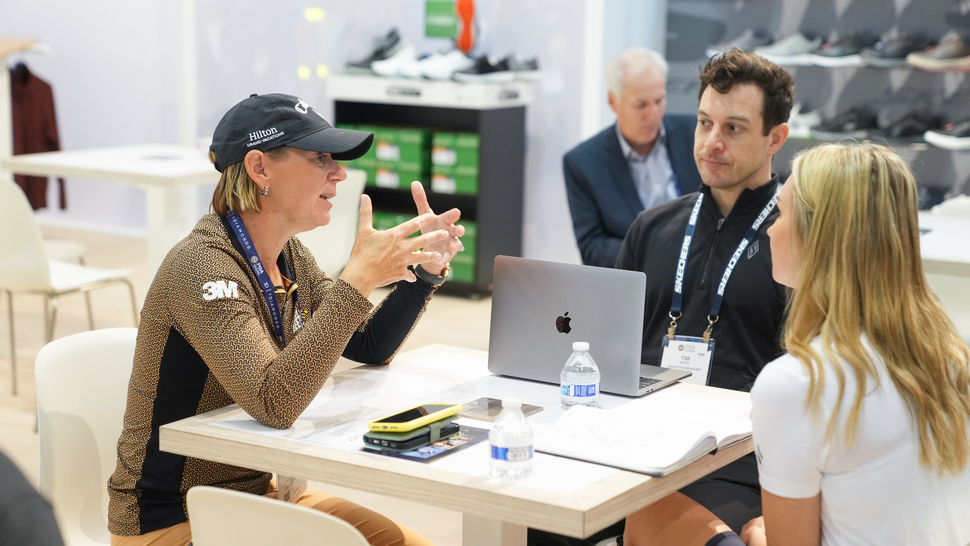
The stakes ahead
The PGA Show provided a platform for a number of companies looking to attract a wider base of participants without going through traditional levels.
EA Sports’ PGA TOUR is using a state-of-the-art video game model that intersects with the sport’s major championships and does so in a manner that’s fun and addicting. Young people enamored with video games generally may wish to pursue golf at the traditional level as they age from teen years into young adulthood.
The continuing expansion of simulators and the presence they are now providing has made major strides from just a few years back. Amazingly, there are more golf simulator locations in Seoul than there are Starbuck franchises.

Related: David Baker interview
Simulators are now providing an access point where people can quickly gather — play golf in a far shorter time and receive all the creature comforts including food and drink.
This year’s PGA Show also pushed to the forefront the increasing role of fashion and how golf has become intertwined as a lifestyle connector whether on or off the course. The adage of if you can’t play especially well, you sure can look well doing it, is a central marketing promotion.

European companies have shifted the debate from predictable and tired looking golf clothes to a more robust intersection where performance and fashion choices are smartly woven together. American-based companies have been forced to change their respective approaches and do far more than what’s been offered previously.
Innovation was a major element at this year’s PGA Show. Now the major question resides on taking gains made and furthering them in the year ahead.
Can the major stakeholders within the sport continue the momentum?
The ’23 season will mark a pivotal year in seeing if various progressions coming out of the pandemic are now in place for the longer term.
The broader golf industry had serious issues prior to the start of the pandemic. Persistent vexing issues such as the time it takes to play the game; the costs associated with it and the difficulty in securing proper instruction are still matters of concern. However, the desire to deal with these topics and others was on display at this year’s event. The challenge lies in getting the needed results thereby providing tangle improvements at multiple levels.
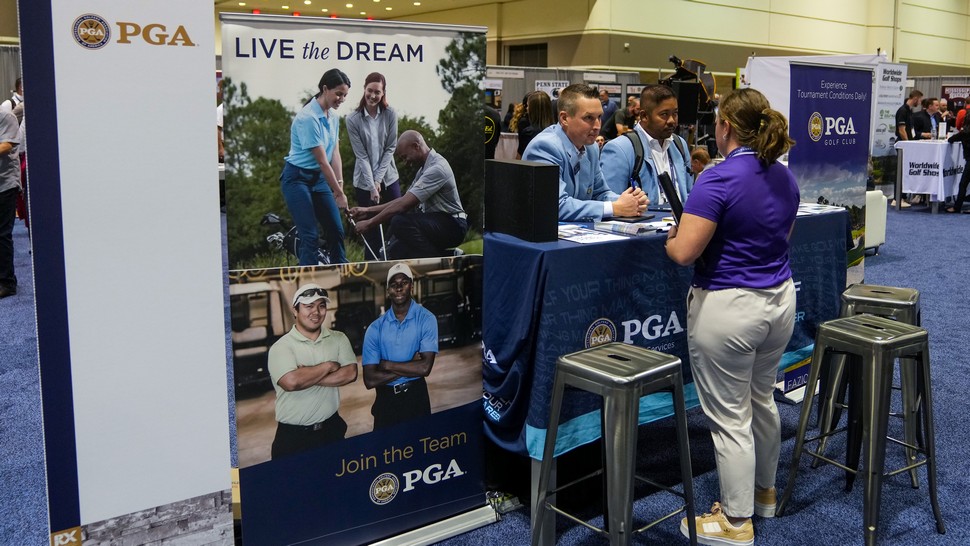
The PGA of America realizes total success is not simply pontificating about “growing the game.” Only sustained actions with necessary resources brought to bear can provide the foundation for even greater successes in the years to come.
Women and people of color are now looking at golf and seeing a lifetime recreation outlet. The numbers of involvement are most encouraging. Sustaining that momentum will be a critical matter and that charge will fall onto the shoulders of the key stakeholders.
Will the seeds planted truly germinate? The ’23 PGA Show could ultimately be viewed in the years ahead as the moment that not only changed the conversation but provided the lift-off for even greater gains ahead.
When the key stakeholders rendezvous again in Orlando in 12 months we shall see if progressions made in a host of areas are cementing themselves or simply blowing in the wind.
Key leaders within the broader golf industry talked the talk at this year’s event and pledged the commitment to do so. The bigger question is can they successfully walk the walk?
Time will tell.
